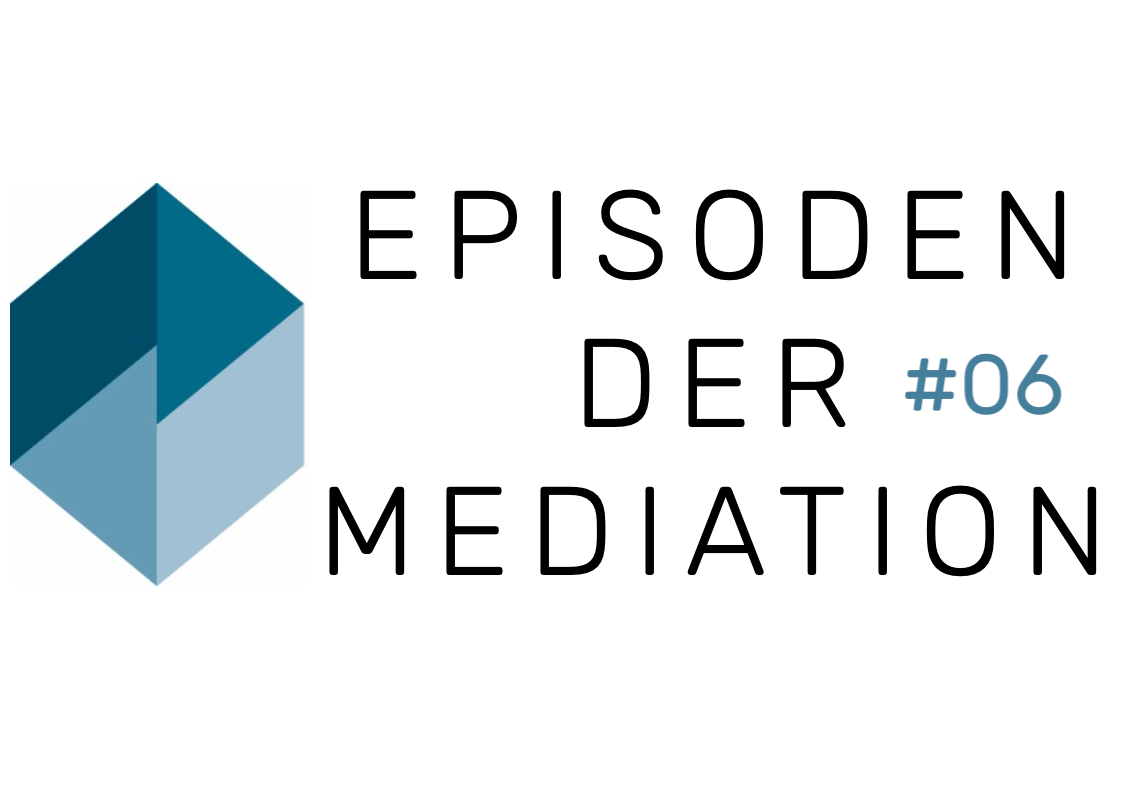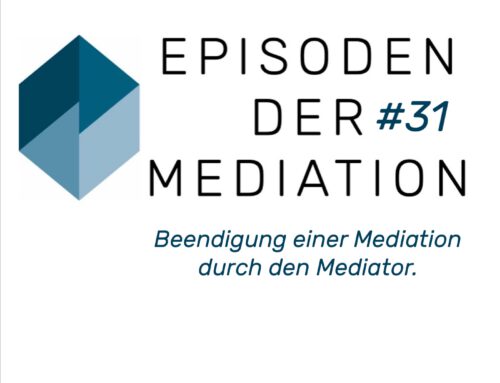INKOVEMA Podcast „Episodes of Mediation“
#06 EdM – Violence and Mediation II
The accusation of violence in mediation
How can mediators react to an allegation of violence in mediation?
The podcast on practical questions about mediation and conflict management.
Welcome to the EdM,
INKOVEMA's teaching stream on the practical issues of mediation and conflict management.
Practical situations in mediation, but also in coaching and conflict counselling, are explained, reflected upon and categorised.
This is episode 6 – Mediation and Violence II – The Allegation of Violence in Mediation.
Classification: In the previous episode, I differentiated between two manifestations of violence with different fields of application:
Violence occurs directly as a form of communication in the mediation meeting or in parallel, i.e. between the meetings. I will not go into this form of relational violence in depth today. However, violence also occurs in the form that it is described by the parties to the conflict. Either as a shared memory and thus affirmed by all parties, which can sometimes lead to apologies in mediation (more on this another time) or the description of violence is denied by the other party. This is the constellation we will be dealing with today, as it poses a particular challenge to the mediator.
Problem descriptionWhat is the problem for the third party if party A accuses party B that B has done violence to A; B has pushed A out of anger or hit A out of anger.
The problem lies in the mandate to act neutrally and impartially – and not to attribute objective truth to every assertion, but not to deny it either!
This is because you can neither agree with A's account in a way that contradicts the perception of B, who denies or will deny it, nor can you deny A's perception in order to fulfil B's potential denial. You may be in a triangle with each other, but when it comes to violence, you are quickly caught between two stools, even if you only feel it.
But you can also pull out of the affair and claim as a way out that it doesn't matter, because for those involved it obviously does! It is important to them! This is often done and justified with the procedure and the dogma of mediation, that mediation is not about the objective truth and therefore there is no search for and decision on the truth in mediation. Law of mediation. Too bad for the mediants. They have to live with it. They can end the mediation. But that's rubbish with gravy! The mediants are not interested in what the textbooks on mediation say and what their dogma is...oh yes, we can already talk about the dogma of mediation here. Don't have any false fears of contact, mediatorsand lawyernothing inside.
Be that as it may, this unfortunately – rarely works well in practice.
You'd better try this. For the parties, their truth is important. And party A remembers being punched by B. B claims and considers it to be true that it was not a punch, but a jostle while passing by. A judge should decide this, but not you! You are a conflict mediator, which is a bad description because you do not mediate conflicts (nor their resolution), but rather the communication about them. And here you have party A, who believes X, and party B, who believes Y. And both are dealing with their difference in mediation, so they want to find an agreement on how to deal with it. And if A and B hold on to their memories and truths, then that's not a problem, they can still come to an agreement on how they want to deal with it, which is absolutely necessary in this case. It is nothing special for relationships to have different memories of what happened and to evaluate these things differently. However, A and B must decide and communicate this for themselves. The third party is there to provide support. And the following key questions are important here:
to A: 1. "What does it mean to you that B does not remember things the way you do and evaluates them differently?" 2. "What does it mean to you that B does not apologise for what you remember as a real event?" 3. "How do you want to deal with the fact that you can't reach a consensus about what happened, but possibly about what you still want to create together, in terms of your relationship with B?" to B: 1. "What does it mean to you that A remembers things differently and accuses you of having used violence, even though you deny it?" 2. "What does this mean for your joint working or living relationship and its basis of trust?
The mediator's pitfall in this type of situation is that you believe that because there is only one reality, only one past and therefore "either beaten or not beaten", you come to the (criminal) legal question of violence or non-violence, lie or truth – and you end up in the role of judge. But as I said, as a mediator this is not your mandate from the parties(!), nor is it your job under the rules of mediation.
Rather, they should mediate communication between the parties who had different perceptions, have memories about them and want to maintain conclusions. Mediate communication about this and how the parties involved want to deal with the differences between their relationship partners.
It is hard to avoid the fact that this procedure is sometimes an imposition for the party who remembers and has probably experienced an act of violence against him or her, but it would also be an imposition for a party who has not carried out an act of violence as alleged and who has to experience in mediation how the neutral and impartial person immediately treats the description of violence as an objective fact and in this sense "decides in favour of the other side".
Next time If the alleged violence is communicated by one side and not denied by the other side, the mediation will then focus on the possible need to apologise, so that the mediator must encourage and initiate a communication of apology. More on this in a later episode
For now, thank you for joining us again.
Stay with us and get through this time well.
Yours, Sascha Weigel.





Leave A Comment